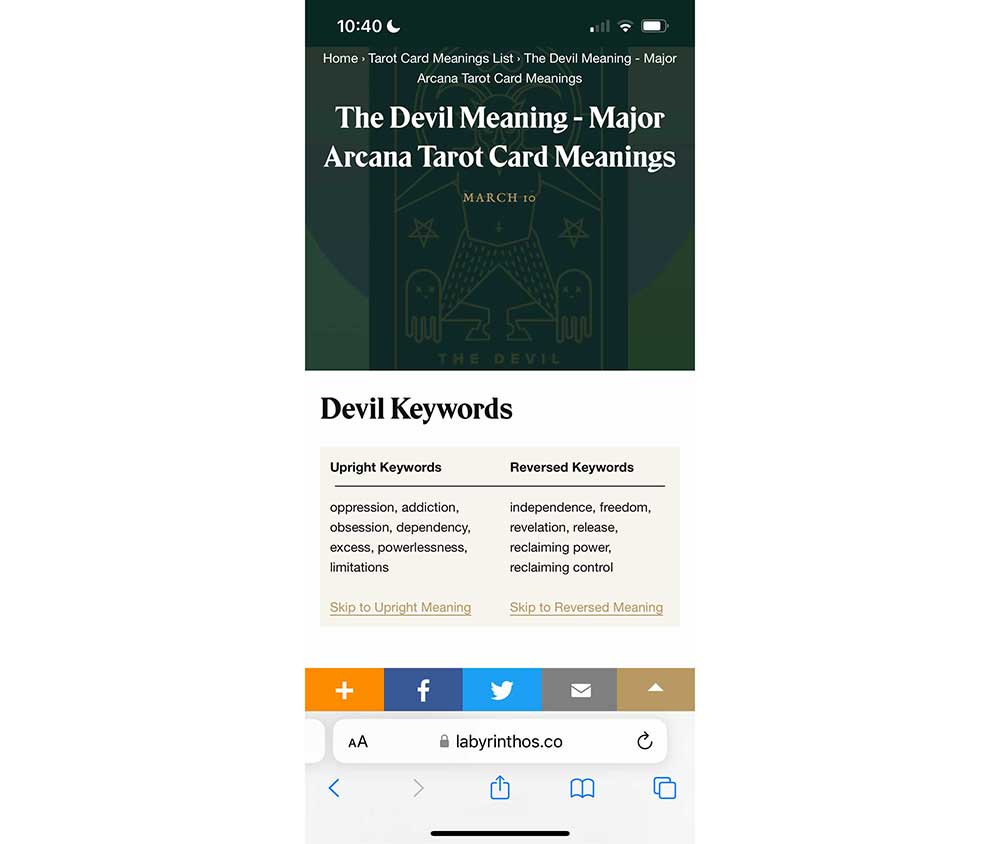On Pulling the Right Cards and Finding Self Worth
Why do we women always feel like we're not good enough and what can we do about it?
Thanks for reading Almost Sated. If you like what you’re reading, please consider subscribing and sharing!
I did a long overdue session with my therapist this week. She’s so good at what she does. I’ve never had a therapist so dramatically help me shift from my “stuck points.” We also have this one big shared interest—the anti-diet movement (I had sought her out because she’s certified in Intuitive Eating). She’s actually the only person in my real life who I can talk with about the latest happenings in the anti-diet space, and she’s as up to date as I am. In many ways, I’m bummed she’s my therapist because I’d love to be friends with her in real life. (Has this ever happened to you?) Que sera sera, I suppose.
A lot has happened in my life since I last saw her, over eight weeks ago. The biggest happening is that I published a book that I co-wrote with 12 other women. I should clarify. I wrote a chapter, but I also created the marketing playbook for the book’s launch and helped edit the book. These things went way better than I’d hoped. I had so much fun and learning and personal growth from the experience, plus I made some amazing friends in the process. (And the book became an Amazon bestseller in five categories, so there’s that.)
But things have gone into overdrive since the launch, in ways I kind of but not fully expected. For one, launch week was every bit as overwhelming and chaotic as I heard it would be. It was shocking to be contacted and congratulated by so many former colleagues and acquaintances, and even a few strangers. It was strange and alienating, and also I felt so stripped bare by the experience of being so vulnerable, that for a solid two weeks after I wasn’t sure why the heck I had decided I wanted to be an author (even though it’s been my dream my entire life). For those two weeks, I decided that for my well-being, I would not take action around those feelings and just see where things landed.
And then somehow, despite the feelings, I persevered. When I had a little distance, I was able to reconfirm that this is indeed what I want to pursue. Only now I had more questions about my direction and an almost manic drive to make things happen. I didn’t want to lose any momentum from the launch, so I started pitching podcasts and guest blogs, and writing my own articles and Substack articles, and this kind of frenetic energy took over.
It felt like I wasn’t doing enough.
There’s that word. The one that, until recently, had been driving my entire life.
And you know the sentence that comes after I’m not doing enough.
It’s I’m not enough. Only now, I know better.
Why do we women feel like we’re never enough?
One thing that struck me in editing Show Your Work: Successful Women Share the Bumpy Roads to Their Biggest Wins was how so many of my fellow authors, successful women in their own right, have also struggled with feelings of not being enough. There it was, right there in print.
I Googled why women think they’re not good enough, and 306,000,000 results came back, including a magazine article that called it a “female affliction.” I also found an article by a therapist explaining why we don’t feel we’re enough. The first two reasons listed: You have hidden core beliefs running the show, and if you listen deeply, your inner voice is actually critical and judgmental.
Yes, and yes.
Actually, I related to every reason listed.
Yes, there is some societal conditioning baked into our feelings of worthiness, too, especially for the women of my generation who were told we could do it all.
Still, it’s no less vexing to recognize that even though I have done so much work to dismantle what I thought was the root cause of this need to prove my worth, I have somehow transferred it from one area of focus to another.
“It’s like when a drug addict gets clean but then picks up a sex or shopping addiction.” I’m paraphrasing, but this was the gist of what my therapist told me. Instead of spending all my time trying to prove my worth through athletic achievement (my old go to), I’m now pouring it into my writing and marketing efforts.
It’s not all bad, though. Because she and I both know what’s behind my behavior. We spent the rest of the session clarifying my real why’s, the things I really want to accomplish versus what’s driving the manic behavior. And we talked about what I don’t want, which is a return to the old me who was so self-consumed and so hyper-focused on all the things that I thought would make me enough that I shut out everything and sometimes everyone else.
We also talked through concrete action steps I could take to stay focused on these whys in addition to the boundaries I already set for myself.
We talked about the threads in my head that I’ve been pulling since the book launch. Like how to grow Substack subscribers (my therapist was the one who suggested I start one in first place), why it’s so easy to grow a brand when it’s not your own, should I write my memoir next (as I had previously intended) or do self-help first, whether I need to get certified as a coach (to build expertise) even though I never ever want to coach anyone again (very early in my life, I was a personal trainer). Her answer to that question was no. You have so much personal knowledge in these areas and you already have the training you need because you were a journalist, she said.
So back to the title of the post
One of my Facebook friends used to pull one card a day from a tarot deck she’s used for years and would post it to her feed for those tuning in. She recently brought it back, and I’ve found myself checking in most evenings to see what card she draws (she also does private sessions). I’m not a tarot expert, but I take in what I read and see if it applies to me.
On the evening of this writing, she posted The Magician card. “You have all the tools you need to take action,” it said. This couldn’t be more on point or spelled out for me. The word tools is relevant, because I’m using all of my marketing and writing tools to launch this next phase of my career.
But since I can’t leave well enough alone, I went to the Labyrinthos site, which I occasionally visit, to see what it had to say. What I like about Labyrinthos is you can choose your deck and pull a card. Then you get a general interpretation of the card and what it means as it relates to career, love or finances.
This time, I pulled The Devil. Note its keywords: oppression, obsession, addiction
Eeks.
But it’s not all bad, because buried in the career meaning section has this nugget:
“Regardless of what it feels like, the Devil’s appearance can signal that you have more choices than you think you do, you only need to reclaim your power.”
This is “the nut” of the situation (the nut being short for nut graf, or nut paragraph, slang in journalism for the paragraph that explains the context of the story “in a nutshell”).
I hold the cards. I have the choice to let insecurity rule me or to decide what I really want and how I want to show up.
Want to get over feeling not good enough? Here are a few suggestions
Understand where that voice is coming from.
Feeling not good enough is a made-up construct. Good enough for what? Often, we’re trying to meet some imaginary expectations we’ve placed on ourselves. Sometimes, we had unreasonable or impossible expectations put on us as children, and we carry this burden into adulthood, often attracting partners who also have unreasonable expectations of us.
Challenge your beliefs.
While it sounds simple, taking a wrecking ball to that negative belief is where it begins. Once you understand that this is something that isn’t real, it’s time to start challenging it. The easiest way is simply to challenge that voice in your head. Repeat after me: I am good enough just as I am.
Go easy on yourself.
Changing your own core beliefs takes time and repetition. If you’ve been holding onto this belief for years, it’s not likely you’re going to completely turn it around overnight. When you catch yourself falling back into negative self-talk, gently redirect yourself back to what you know to be true.
Release the pressure of perfection.
People who struggle with not doing enough or being enough often have incredibly high self-expectations. The need to be perfect drives the feelings of imperfections. Repeat after me: Perfection is not possible.
Get outside help.
A reputable therapist can help you reframe these types of negative thoughts.
Have tips that have helped you? I’d love to hear them!
Thanks for reading Almost Sated. Right now, I’m focused on getting this newsletter into the hands of people who need it. If you found what you read interesting, encouraging, or helpful, please make sure you’re subscribed and consider sharing it with others.





